Rare photos capture Afrobeats' rise to take over the world
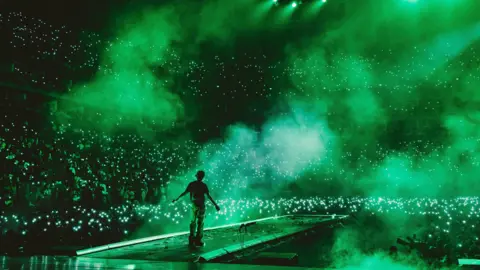 Oliver Akinfeleye
Oliver AkinfeleyeAfrobeats has swept the world of music like a tsunami - it dominates playlists and its fans cram into huge stadiums to hear the likes of Nigerian superstars Wizkid, Davido and Burna Boy.
Photographer Oliver Akinfeleye, known professionally as "Drummer", caught the Afrobeats wave early - and he decided to document it as it grew into a global phenomenon.
Since 2017, the New Yorker of Nigerian descent has had exclusive backstage access to some of the biggest artists of the genre - capturing quieter moments of reflection as well as strutting stage performances.
"I remember my first project with Wizkid like it was yesterday - Echostage Washington DC, 2017," Drummer told the BBC. "The feeling was exhilarating. It was my job to tell the visual story of how it all went down."
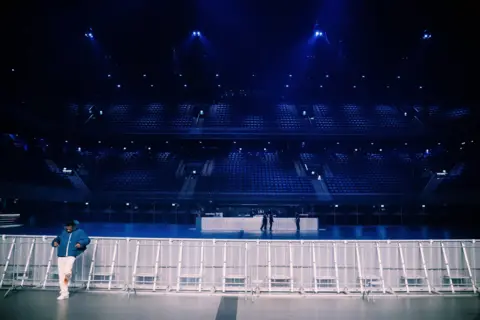 Oliver Akinfeleye
Oliver AkinfeleyeDrummer has not stopped clicking since - and has now released Eagle Eye, a book of photographs showcasing Afrobeats' rise from humble beginnings to one of Africa's largest cultural exports.
Afrobeats has its roots in various West African musical genres that became especially popular in the decades that followed independence as the continent began celebrating its freedom from colonial rule.
Highlife, which flourished along the coast from the late 19th Century, became synonymous with Ghana's national identity after independence in 1957 - and was in turn hugely influential on Nigerian musician Fela Kuti. His Afrobeat (minus the "s") movement, which mixed traditional rhythms with funk and jazz, became the sound of the 1970s and 1980s in West Africa.
At the turn of the millennium, this rich cultural heritage fed into Afrobeats, along with a mix of Western pop, rap and dancehall.
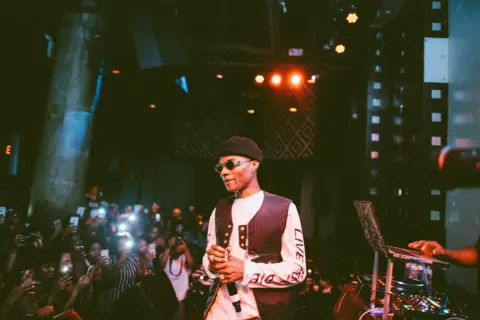 Oliver Akinfeleye
Oliver AkinfeleyeIt gained further popularity in the UK and North America, where there are large diaspora populations, in particular from Nigeria, where most of the genre's stars came from.
Afrobeats artists began performing to these communities at first in small venues in the early 2010s.
Then it really take off - between 2017 and 2022 Afrobeats experienced 550% growth in streams on Spotify, according to data from the world's most popular streaming service.
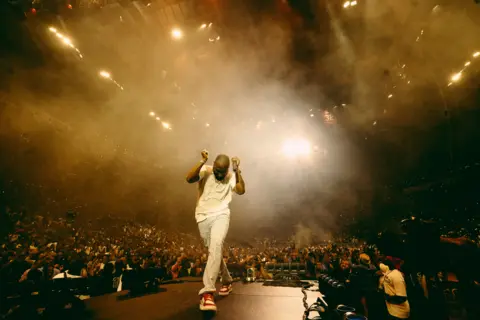 Oliver Akinfeleye
Oliver AkinfeleyeThis resulted in many of the artists becoming household names around the world, and the musical industry taking note.
It has gone on to include African music in mainstream award ceremonies like the Grammys.
Today these artists easily pack out stadiums like Madison Square Garden in New York - pictured below ahead of Wizkid's performance in 2023.
"Madison Square was a night to remember - the iconic venue illuminated in the colours of the Nigerian flag honouring our homeland," says Drummer.
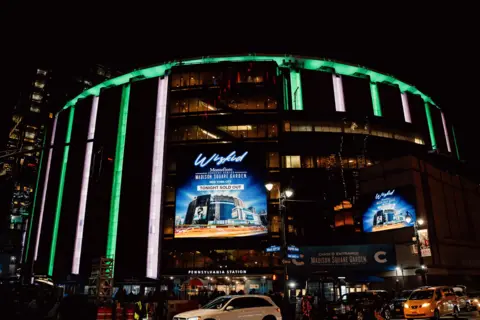 Oliver Akinfeleye
Oliver AkinfeleyeDrummer was able to take photographs of the musicians as they started out on their global careers.
"I always felt that I was capturing moments with just my eyes. Walking the streets of New York City, I would frame scenes in my mind - people, light, emotion," the photographer says.
"I'd ask myself, how do I translate this mental perspective to reality?"
Gradually, the audience grew and became more international with fans in countries such as China, Germany and Brazil.
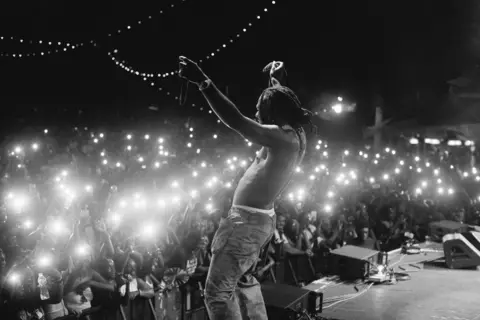 Oliver Akinfeleye
Oliver AkinfeleyeNow even non-African musicians are taking up the Afrobeats sound and releasing their own versions, including artists such as Chris Brown, who released Blow My Mind with Davido.
The US singer has also performed with Wizkid in London - as the photo below from 2021 shows.
"I love this picture because when Wizkid brought Chris Brown out at The O2 arena, the place exploded. No-one saw it coming - the energy shifted instantly," says Drummer.
"Shock, excitement and pure electricity. A moment stamped in memory and in history."
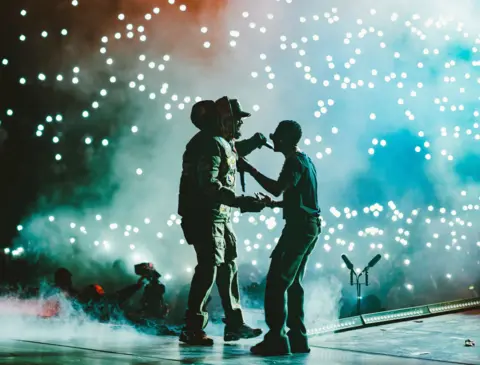 Oliver Akinfeleye
Oliver AkinfeleyeDrummer says one of the aims of the photo book is not to just show people what he saw, but to help them feel what he experienced - through his pictures.
It also sometimes reveals the feelings of the superstars in their private moments.
This final picture shows Wizkid backstage on his phone in 2021.
It was "a rare quiet moment", but even in the silence and the calm his presence spoke volumes, says Drummer.
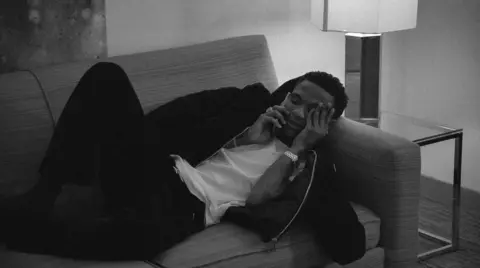 Oliver Akinfeleye
Oliver AkinfeleyeMore about Afrobeats from the BBC:
 Getty Images/BBC
Getty Images/BBCGo to BBCAfrica.com for more news from the African continent.
Follow us on Twitter @BBCAfrica, on Facebook at BBC Africa or on Instagram at bbcafrica
